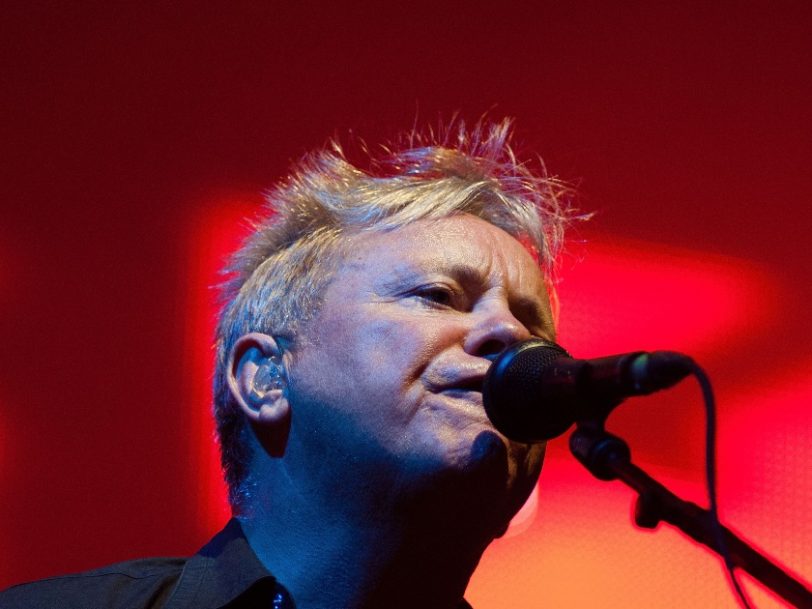Realising their eighth studio album, Waiting For The Sirens’ Call, was something of a bittersweet experience for New Order. Taken at face value, the record was an unqualified success, as it shot to No.5 following its release, and yielded two classic singles. Yet its performance was overshadowed by the departure of bassist and co-founder Peter Hook in 2007.
Listen to ‘Waiting For The Siren’s Call’ here.
“We suddenly began getting hailed as pioneers!”
It’s ironic that this should have happened at that particular moment, for during this same period, the early-to-mid-2000s, New Order’s profile was arguably at its highest. They received NME’s coveted Godlike Genius award just as Waiting For The Sirens’ Call was set for release, and they were one of the coolest names new bands could drop around this time.
“I discovered hip young bands who had been inspired by New Order,” Stephen Morris wrote in his memoir Fast Forward. “People like Hot Chip and LCD Soundsystem were mixing electronica and guitars in the same way we had been doing years before. They were pissing about with drum machines and analogue synths like we had. We suddenly began getting hailed as pioneers!”
As they worked on the follow-up to 2001’s Get Ready, New Order began collaborating on new songs in a way they’d not enjoyed since their early days as Joy Division. Initial writing sessions at Stephen Morris and Gillian Gilbert’s farm in rural Cheshire produced a glut of promising material, with the band’s newest member, Phil Cunningham, proving pivotal.
“We became unusually prolific and amassed a large quantity of ideas”
“The ideas that became the basis for Waiting For The Sirens’ Call were the first we’d written with Phil, and the process was very productive,” Morris later recalled. “Although Phil had ended up taking Gillian’s place on the keyboards at gigs, I honestly think synthesising was something he was never particularly relaxed about. The guitar was Phil’s main instrument, and he had no shortage of ideas for songs. We became unusually prolific and amassed a large quantity of mainly guitar-based ideas.”




